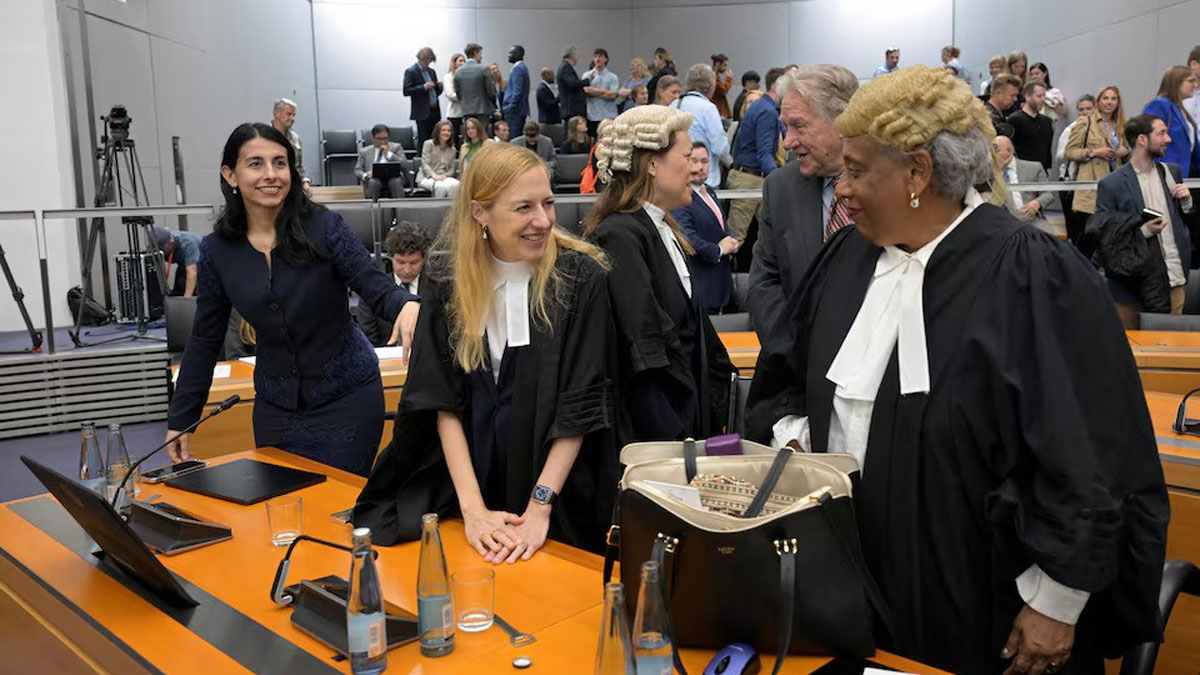
University of Fiji Vice Chancellor, Professor Shaista Shameem has labelled a decision on climate change and sea level rise handed down by the International Tribunal for the Law of the Sea as historic, with far-reaching effects on the life, health and well-being of people living on small island states.
While speaking from Hamburg, Germany, Professor Shameem says the Commission of Small Island States on Climate Change and International Law is made up of the small islands of Antigua and Barbuda, Tuvalu, Vanuatu, Palau, St Lucia and Grenadines, St Kitts and Nevis and the Bahamas.
Professor Shameem says the feeling after the decision was exciting, not only for the COSIS members but also for the lawyers assisting in the case such as herself.
She says it was the first such case decided by the global maritime court which will reverberate through other decisions as two other international courts are in the midst of proceedings on climate change and its deleterious effects not only on the environment but also on human beings and on the life of the planet itself.
Professor Shameem says the advisory opinion handed down by the Judges was written in language that leaves no doubt that states must take responsibility for climate change that they have caused or contributed to and provide protection, prevention, and legal recourse to monitor and cut carbon emissions.
She says the court said that the states' targets for cutting greenhouse emissions must be set objectively based on the best available science and relevant international rules and standards.
Professor Shameem says this decision sets the bar far higher than the Paris Agreement did.
The court found that greenhouse gases and emissions from fossil fuels and other planet-warming gases that are absorbed by the ocean count as marine pollution, states have the responsibility for monitoring and reducing carbon emissions in ways that can be measured and must go beyond international climate change treaties to protect the marine environment and states that depend on it, and meeting the Paris Agreement requirements is not enough to save the health of the oceans.
Professor Shameem says the Tribunal’s Advisory Opinion which was written in definite terms and was weighty will inform future legal and diplomatic work in putting an end to inaction.
The Professor says it provides a link between harmful conduct by both state and non-state parties and the health of the oceans which is a source of livelihood for so many, especially in the Pacific.
The UniFiji Vice Chancellor says States and others who pollute the environment can no longer hide behind the weaknesses of international climate treaties as the court made it clear that compliance with the Paris Agreement alone is insufficient.
She says this decision was a major first step in holding the major polluters accountable and the door had been opened by a longstanding international court and there was no going back, said Professor Shameem.
She also acknowledged the University of Fiji for participating in such eminent legal proceedings in the company of world-renowned lawyers with specialisation in environmental science as well as law and human rights.
COSIS members Tuvalu and Vanuatu were present at the decision while others attended online.
Stay tuned for the latest news on our radio stations

